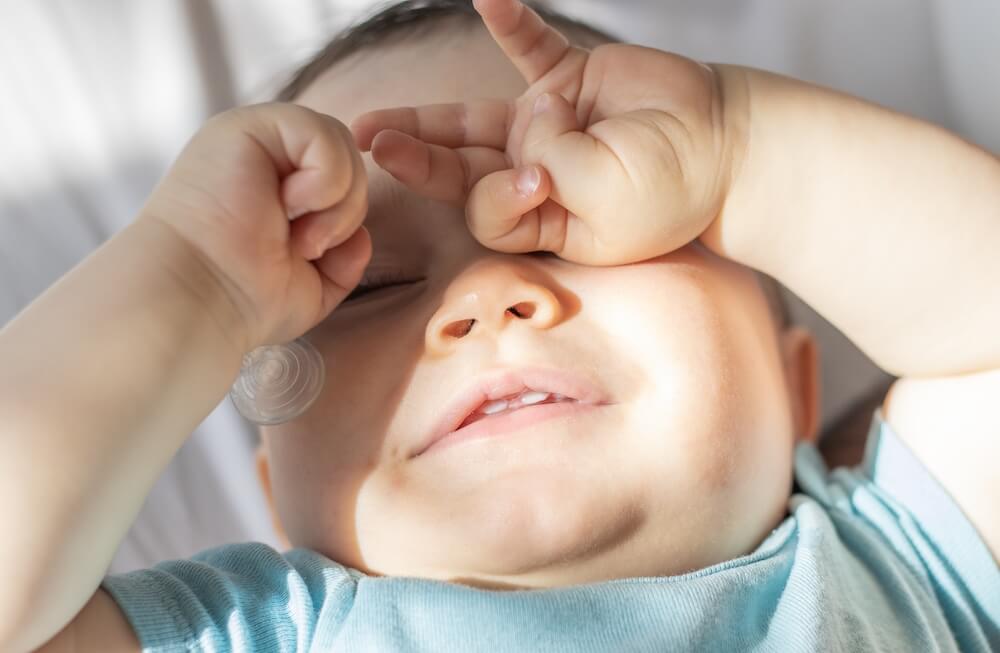Has your baby’s sleep pattern changed? Maybe you are wondering: Do babies sleep more when teething? Keep reading to find out.
As parents, we all want to ensure that our babies get enough sleep and rest, especially when they are going through difficult times such as teething. Teething is a natural process that occurs as the baby’s first set of teeth starts to grow and break through the gums. It can cause discomfort, irritability, and even pain, leading to disrupted sleep patterns.
One question that often arises among parents is whether babies sleep more when they are teething. The answer is not a straightforward one, as every baby is different and the effects of teething can vary. However, in this article, we will explore the connection between teething and sleep and help you understand what to expect during this stage.
Does teething cause sleep problems?
Teething can indeed cause sleep problems in babies. During teething, babies experience discomfort, pain, and inflammation in the gums, which can make it difficult for them to fall asleep and stay asleep. They may also experience an increased desire to chew on things, which can cause discomfort and prevent them from settling down for a nap.
Additionally, teething can also cause a fever, which can lead to a general feeling of discomfort and restlessness, making it difficult for babies to fall asleep. As a result, they may wake up more frequently during the night and have trouble settling back down, leading to a disrupted sleep schedule.
Do babies sleep more when teething?
It is not uncommon for babies to sleep more when they are teething, especially if they are experiencing discomfort or pain. However, this increased sleep can also be accompanied by disrupted sleep patterns and frequent waking.
Babies may also experience restless sleep when they are teething, as they may be wriggling around in discomfort. This can lead to a situation where they are getting more sleep overall, but are not getting the deep, restful sleep that they need to feel refreshed and rested.
How to help your baby sleep during teething
While teething can be a difficult time for both you and your baby, there are some things you can do to help your baby sleep more comfortably. Here are some tips to consider:
- Offer a teething toy: A teething toy can help soothe your baby’s gums and provide a source of comfort. You can choose a toy that is soft, chewable, and safe for your baby to put in their mouth.
- Use a pacifier: Pacifiers can be helpful in soothing a teething baby and helping them fall asleep. Make sure that you choose a pacifier that is safe and appropriate for your baby’s age.
- Apply teething gel: Teething gels can help soothe your baby’s gums and relieve any pain or discomfort. Make sure to follow the instructions on the packaging and only use gels that are safe for babies.
- Give your baby a warm bath: A warm bath can help soothe and relax your baby, making it easier for them to fall asleep.
- Offer a gentle massage: Massaging your baby’s gums can help to relieve any discomfort or pain and make it easier for them to fall asleep.
- Try to maintain a consistent sleep schedule: Although teething can disrupt your baby’s sleep, it is important to try to maintain a consistent sleep schedule as much as possible. This will help your baby feel more secure and relaxed, making it easier for them to fall asleep and stay asleep.
Keep in mind that, although teething can be uncomfortable, it is not supposed to cause excessive pain, diarrhea, or high fever. In case you notice one or more of these symptoms, we recommend you to talk to your pediatrician.
Now that you know the answer to the question “Do babies sleep more when teething?”, download the Kinedu app and access expert-led live and on-demand classes on baby sleep and other important topics for parents.








